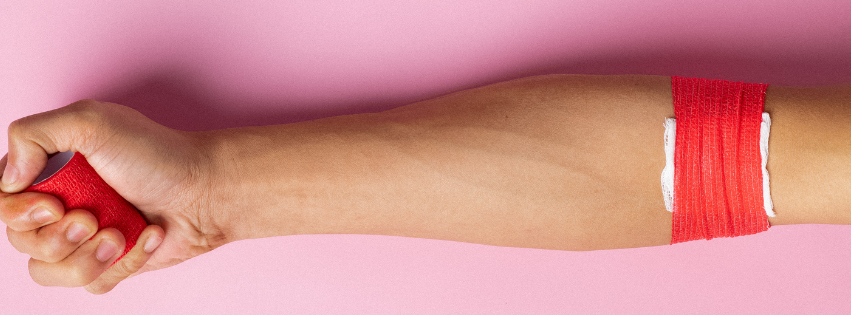
The Health Benefits of Blood Donation: Heart Health, Detox & More
BALA BITES: THE HEALTH SECRETS BEHIND DONATING BLOOD
I’ve talked before about small actions that compound into big health benefits.
Here’s one you may not have considered: giving blood.
This isn’t just about helping others (though it absolutely does).
It can also be a health booster for you.
BLOOD DONATION CAN BE GOOD FOR YOUR HEALTH
Giving blood is often framed as a selfless act. That’s true. But research shows there are real health benefits for the donor too.

Here’s what science tells us:
- Better Blood Cell Health: A 2024 study — Clonal Hematopoiesis Landscape in Frequent Blood Donors — found that frequent donors tend to have blood stem cells that are more resilient and less prone to mutations linked to blood cancers
- Supports Heart Health: Reducing iron stores may lower the risk of heart disease. Excess iron can promote oxidative stress, linked to cardiovascular problems
- Improves Circulation: Donation may reduce blood viscosity, making it easier for the heart to circulate blood efficiently
- Boosts Emotional Well-Being: Acts of service are linked to lower stress and increased happiness. Donating blood may lift mood and mental health over time. They say donating 1 pint helps save 4 lives.
Of course, while studies report the above benefits, results can vary and the overall evidence quality is mixed. Still, the upside is worth noting.
BLOOD DONATION & DETOX: THE PFAS CONNECTION
A surprising bonus? Blood and plasma donation can help reduce PFAS — the so-called “forever chemicals.” A 2022 clinical trial found:
- Plasma donation every 6 weeks reduced PFAS levels by 30%.
- Whole blood donation every 12 weeks reduced PFAS by 10%.
PFAS compounds are found in non-stick cookware, waterproof fabrics and food packaging. They accumulate in the body and have been linked to cancer risk, hormonal disruption and immune system problems.
A caveat: While blood donation helps lower PFAS, sweating is likely a more effective detox method overall. Regular sauna sessions or exercise that promotes heavy sweating can assist the body in clearing a wider range of toxins, including PFAS.
A CONSIDERATION FOR MEN
While reducing iron has benefits, about 25-30% of men who donate regularly may develop iron deficiency.
Low iron can lead to fatigue, weakness, poor exercise recovery and undo any intended health benefits.
It’s smart to check your iron, ferritin, and hemoglobin levels before and after regular donations.
Men over 40, in particular, should pay attention. Iron tends to accumulate with age because, unlike women (who lose iron through menstruation and pregnancy), men do not.
KEY DONATION QUESTIONS
How Often Can You Donate? For men, as frequently as once every 12 weeks. For women, once every 16 weeks. Plasma and platelet donation frequency varies by location and individual health.
What Donation Is Right For You? Whole Blood Donation is the classic donation where you contribute a pint of blood that is later separated into red cells, plasma, and platelets. You can also donate double red cells, where red blood cells are collected and the plasma and platelets returned to your body. This is not for the first-timer.
ONE SMALL ACTION THIS WEEK
Consider scheduling a donation. Try out the Red Cross’s easy search tool: Find a local blood drive. Your donation might save a life. And it may just benefit yours too.
KEY TAKEAWAYS
- Blood donation can support heart health, improve circulation, and promote healthier blood cells
- Regular donors may have lower PFAS levels, though sweat-based detox is generally more effective for chemical clearance
- Several donation types exist: whole blood, power red, platelets, and plasma
- Men (especially over 40) should monitor iron, ferritin, and hemoglobin levels to avoid deficiency
- Use the Red Cross tool to find a donation drive near you
- Picking the right sound and device can make a big difference, especially when traveling or sharing spaces
FURTHER READING
Intrigued by personalized nutrition? Begin with the Symptom Solver Quiz
Overwhelmed trying to buy protein powder? Check out our protein powder buyer's guide
Changes at the FDA. How closing the GRAS loophole will affect you